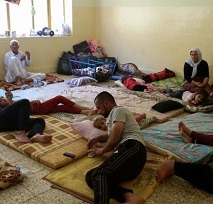Source: Common Dreams
Observers say the U.S. is not only lagging in its humanitarian response, but also driving the war and conflict behind ongoing displacement
As refugees are stranded at train stations, attacked by riot police, and killed during the perilous journey across the Mediterranean, Europe’s failure to address the rising humanitarian crisis is being met with global outrage and sorrow.
Now, many are also looking across the Atlantic to the United States, where observers say key responsibility for the crisis lies—not only because the country is lagging in its humanitarian response, but also because its war policies lie at the root of the ongoing displacement. read more




